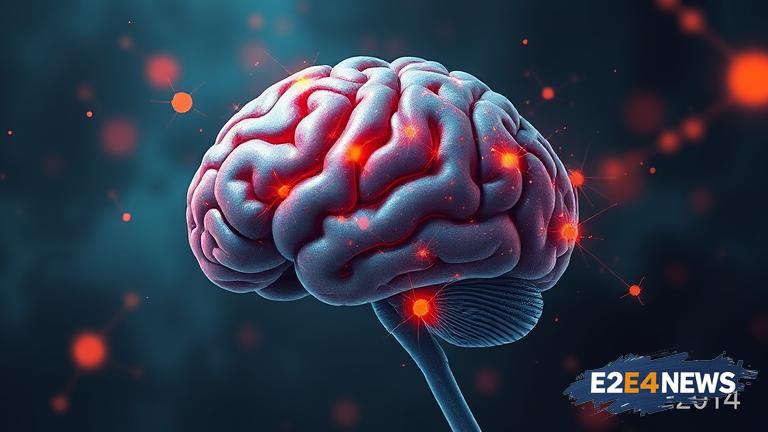A team of researchers has conducted an in-depth study to explore the role of the brain in treating type 2 diabetes. The study, which has garnered significant attention in the medical community, has shed new light on the complex relationship between the brain and the body’s ability to regulate blood sugar levels. According to the researchers, the brain plays a crucial role in glucose metabolism, and its dysfunction can contribute to the development of type 2 diabetes. The study’s findings suggest that the brain’s ability to sense and respond to changes in blood glucose levels is impaired in individuals with type 2 diabetes. This impairment can lead to a vicious cycle of hyperglycemia and insulin resistance, further exacerbating the condition. The researchers used advanced imaging techniques to study the brain’s activity in response to glucose ingestion. They found that the brain’s reward system, which is responsible for regulating food intake and energy balance, is altered in individuals with type 2 diabetes. The study’s lead author noted that the brain’s role in glucose metabolism is often overlooked, and that a better understanding of this relationship could lead to the development of more effective treatments for type 2 diabetes. The researchers also found that the brain’s stress response system is activated in individuals with type 2 diabetes, leading to increased levels of cortisol and other stress hormones. These hormones can further contribute to insulin resistance and hyperglycemia. The study’s findings have significant implications for the treatment of type 2 diabetes, suggesting that therapies targeting the brain’s stress response system and reward system may be effective in improving glucose metabolism. Additionally, the study highlights the importance of lifestyle interventions, such as diet and exercise, in managing type 2 diabetes. The researchers noted that a healthy diet and regular physical activity can help to improve the brain’s ability to regulate blood sugar levels. Furthermore, the study suggests that cognitive training and stress management techniques may also be beneficial in improving glucose metabolism. The researchers are hopeful that their findings will lead to the development of new and innovative treatments for type 2 diabetes. They also emphasize the need for further research to fully understand the brain’s role in glucose metabolism and to explore the potential of brain-targeted therapies for the treatment of type 2 diabetes. The study’s findings have been published in a prestigious medical journal and have garnered significant attention from the medical community. The researchers are confident that their study will contribute to a better understanding of the complex relationship between the brain and type 2 diabetes, and will ultimately lead to improved treatments and outcomes for patients. In conclusion, the study’s findings highlight the critical role of the brain in treating type 2 diabetes, and suggest that a comprehensive approach to treatment, including lifestyle interventions and brain-targeted therapies, may be the most effective way to manage the condition. The researchers are eager to continue their research and to explore the potential of brain-targeted therapies for the treatment of type 2 diabetes. With the rising prevalence of type 2 diabetes worldwide, the need for effective treatments has never been more pressing. The study’s findings offer new hope for patients and highlight the importance of continued research into the complex relationship between the brain and type 2 diabetes.




